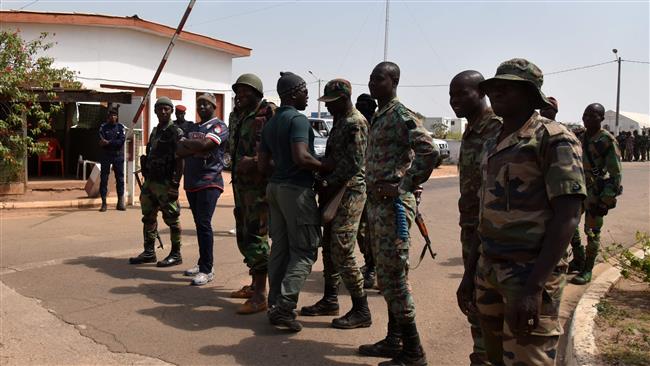Ivory Coast: Government clinches deal with mutinous soldiers
A deal has been reached between the Ivory Coast’s government and the mutinous troops, days after a group of dissident army soldiers took over army bases in cities across the West African country, demanding bonus payments. “A deal has been reached in Bouake (the Ivory Coast’s second largest city) between the chief of staff, the defense minister and the (rebel) troops,” said a source close to the presidency, speaking on condition of anonymity, on Friday night.
The source did not give further details, including the terms of the deal, but other reports said that disgruntled troops had agreed to return to their barracks. Bruno Kone, a government spokesman, also confirmed the news, adding that the deal was clinched late on Friday. It is, however, the second time that a deal to resolve the current standoff has been announced. President Alassane Ouattara said last week that a deal was clinched between Yamoussoukro and the rebels.
According to the initial deal, the government promised to pay each soldier 12 million CFA francs ($19,278) in bonuses. But troops later said they had not received any money. The unrest began on January 6, when soldiers took control of Bouake, firing rockets and terrifying residents of the city. The mutiny, then, took momentum and spread to some other cities over the weekend, including Abidjan, the commercial capital.
On Friday, the troops relaunched their rebellion, prompting the government to clinch the second deal in a bid to put an end to the uprising. The soldiers, belonging to an army composed of a patchwork of ex-warlords and their loyal men, also want pay raise, housing, and swifter promotion.The Ivory Coast, the world’s top cocoa producer, is West Africa’s largest and most prosperous economy. The French-speaking country emerged from nearly a decade of short wars and a protracted crisis in 2011. However, the factionalized, ill-disciplined military and increasing political divisions have sparked fresh concerns about the state of security in the country and how the government could continue to realize its economic objectives in the future.
Presstv





